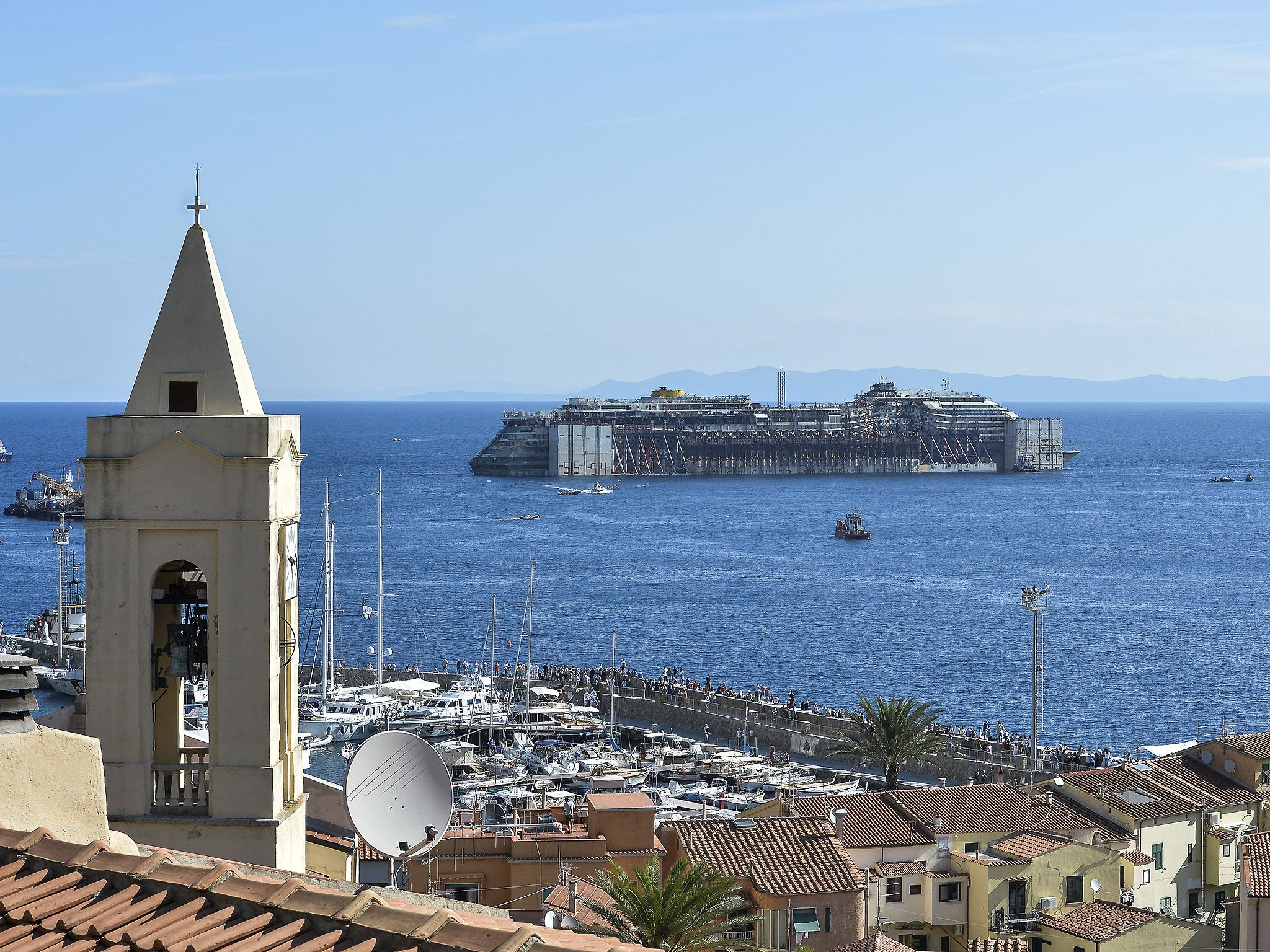Costa Concordia finally towed from Giglio amid environmental concerns that cruise liner is a 'floating bomb'
The rusting, stricken liner will be towed through unspoiled Mediterranean waters and through the middle of a whale reserve

Your support helps us to tell the story
This election is still a dead heat, according to most polls. In a fight with such wafer-thin margins, we need reporters on the ground talking to the people Trump and Harris are courting. Your support allows us to keep sending journalists to the story.
The Independent is trusted by 27 million Americans from across the entire political spectrum every month. Unlike many other quality news outlets, we choose not to lock you out of our reporting and analysis with paywalls. But quality journalism must still be paid for.
Help us keep bring these critical stories to light. Your support makes all the difference.
As the Costa Concordia begins its final journey to the scrapyard, environmental campaigners are warning of the potential damages to the marine ecosystem as it sweeps through 200 nautical miles of lush Mediterranean seas.
The 290-metre corroding cruise ship will later today be towed from Giglio, the Italian island it struck two-and-a-half-years ago – a maritime disaster that killed 32 people.
It started its four-day voyage to Genoa, northern Italy, travelling past the French island of Corsica and through a whale and dolphin reserve.
Corsicans have reportedly dubbed the liner a “maritime Chernobyl,” The Times reports, as it drags 12 tonnes of toxic products and polluted seawater to its final destination.
However, escorting the 115,000 tonne liner will be a flotilla of anti-pollution and safety vessels.
“Rigorous and constant” checks will be carried out on the ship, Italy has confirmed, amid concerns from neighbouring France that its own seas could be affected.
Last week it was revealed that Segolene Royal, the French Environment Minister, had written to her counterpart in Italy, Gian Luca Galletti, demanding “written and incontrovertible proof” that the ship’s fuel tanks had been emptied, the Telegraph reports.
The liner’s final route to Genoa had still not been finalised by last Thursday, further riling French officials.
It was due to be moved on Monday but rough seas and final checks to the mammoth vessel hampered its scheduled departure time.
The Costa Concordia will be broken up for spare parts when it arrives in Genoa, following one of the largest maritime salvage operations in history.
The ship was brought upright in September and last Monday, salvage workers gradually lifted the luxury cruise ship from the sea floor by pumping air into 30 large metal boxes attached to the hull, known as sponsons.
The ship’s captain, Francesco Schettino, is on trial facing charges of manslaughter, which he denies.
One remaining body still hasn't been recovered by divers - that of Indian waiter Russel Rebello, though Italian officials have pledged to continue to search for him.
The Costa Concordia has been dubbed a "floating bomb"
Subscribe to Independent Premium to bookmark this article
Want to bookmark your favourite articles and stories to read or reference later? Start your Independent Premium subscription today.
Join our commenting forum
Join thought-provoking conversations, follow other Independent readers and see their replies
Comments